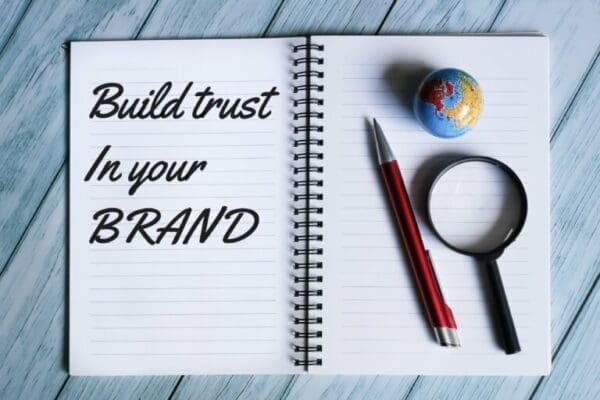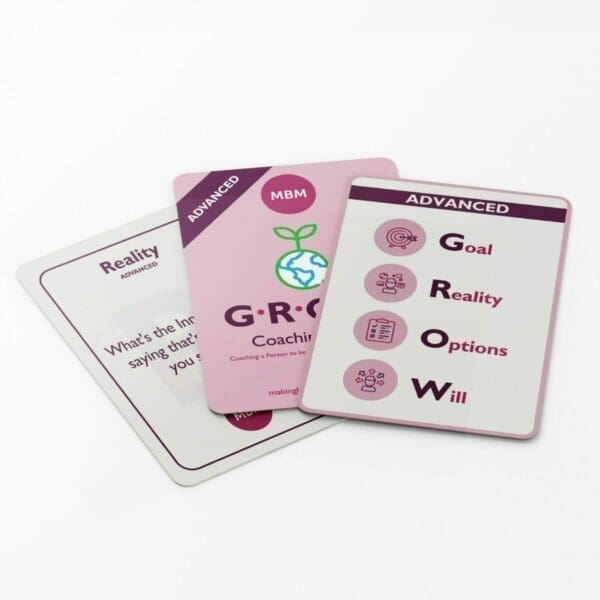The Role of Trust in Transforming Individuals into High-Performing Teams
Imagine a team working smoothly, overcoming challenges and achieving goals effortlessly. So what’s the key element that transforms a group of people into a strong collaborative unit? It’s not only skill or knowledge but team trust.
In the dynamic world of business, where success is a result of collective efforts, team trust emerges as the ultimate game-changer. In this article, we’re diving deep into the realm of team trust, exploring how it forms, why it’s indispensable, and the concrete steps every business can take to nurture it. Buckle up as we uncover the magic that happens when trust becomes the cornerstone of teamwork.
Building Trust Within Teams

Open communication is the bedrock of trust. It’s a channel through which ideas, concerns, and questions flow freely, fostering a culture of open dialogue. Specifically, when individuals feel secure expressing themselves, diverse viewpoints merge to form innovative solutions. This lays the groundwork for collaboration to flourish, united by a shared understanding that each voice matters.
Shared goals and objectives are the glue binding team efforts. They rally individuals around a common purpose, igniting a sense of camaraderie and shared commitment. All in all, this shared sense of purpose unites the team’s energies, reinforcing trust among members who see their peers equally invested in the collective success.
Transparency is crucial for trust as it brings clarity to decisions. Clear processes make actions and choices understandable. This removes doubts and lessens assumptions that erode trust. Leaders and team members operate with integrity, making choices that benefit the team and organisation. And transparent settings build trust, as people count on predictable actions and decisions.
Also, collaboration and knowledge sharing strengthen the trust structure. By encouraging active participation, teams tap into their collective expertise. Collaboration fosters a sense of belonging and engagement, while knowledge sharing showcases a willingness to contribute valuable insights.


>> Advanced GROW Coaching Cards <<
>> Branded Cards <<
Barriers to Trust
Low trust in a team can create various obstacles that hinder smooth collaboration and effective communication. One major issue is a lack of clear communication. When team members don’t openly share information or concerns, it creates a gap that can be filled with assumptions, damaging trust over time.
Also, conflicting interests and goals can harm trust. When members have different objectives or hidden motives, suspicions arise, making teamwork hard. Unresolved conflicts can worsen trust problems, causing strained relationships and a negative work atmosphere. These challenges highlight the need for teams to act early. Hence, creating an environment of open talk, mutual respect, and conflict resolution should be a priority.
Besides these barriers, another big challenge comes from a history of unresolved conflicts. These conflicts can affect trust in the team. Past disagreements that aren’t dealt with can cause ongoing hard feelings and make team members feel vulnerable. As a result, this history of conflicts can make it really tough for the team to progress together.
Solutions to Barriers:
To overcome these obstacles, a thorough and versatile strategy is necessary. This strategy includes making intentional moves to foster a culture of openness, and understanding, and resolving conflicts before they escalate. By openly dealing with the root problems, teams can create a space where concerns are heard, and disputes are seen as chances to improve.
Furthermore, by recognising these challenges and accepting the shared duty to tackle them, teams can establish the foundation for trust. This atmosphere then becomes fertile ground for teamwork to grow, diverse viewpoints to be appreciated, and new ideas to prosper, all of which play a part in the team’s ongoing achievements.
Sticky Learning ® is 7 times more effective than 1-day training courses. Plus, you will get a Chain of Evidence proving your Return on Investment. Discover soft skills training that changes behaviours long term.

Leadership’s Role in Fostering Trust

In the realm of team trust, leadership is both the architect and the guardian. Effective leaders serve as role models, setting the tone for trust within the team. Leading by example, they demonstrate integrity, authenticity, and consistency in their actions and decisions. When team members witness their leaders upholding these qualities, it sends a powerful message that trust is a fundamental value within the team’s culture.
Furthermore, leaders empower team members by giving them autonomy and responsibility. Empowerment is vital for trust-building, showing belief in individuals’ decision-making and results. When team members are trusted to handle challenges on their own, their ownership and dedication grow. Embracing empowerment, leaders foster a culture where trust flourishes, nurturing teamwork and innovation.
Effective Communication for Trust
Active listening emerges as a cornerstone in building trust. It’s a skill that signals genuine engagement with others’ perspectives. When individuals listen attentively, they validate their colleagues’ thoughts and concerns. This fosters an environment where everyone feels heard, contributing to a sense of respect and mutual trust.
Regular team meetings and updates play a pivotal role in nurturing trust. These gatherings provide avenues for sharing progress, discussing challenges, and brainstorming solutions. This ongoing connection prevents silos and misinformation, reinforcing a collaborative environment where information flows freely.
Using these communication strategies, teams strengthen trust. First, active listening, combined with honest and regular updates, forms a trust framework that unites individuals. This foundation boosts team unity, resilience, and mutual belief in skills. Consequently, it creates an environment where collaboration not only grows but blossoms, letting teams work smoothly toward shared goals with strong backing.
Trust and Remote Teams

Building trust within remote or distributed teams presents unique challenges. The physical distance can hinder the natural interactions that often cultivate trust in traditional settings. However, by understanding these challenges and implementing effective strategies, remote teams can foster a strong foundation of trust that transcends geographical boundaries.
Using technology is crucial for remote teams. Clear communication tools allow ongoing interaction and sharing of information. Video calls, instant messaging, and project software help teamwork instantly, imitating in-person meetings. By adopting these technologies, teams build a virtual area where all can join and know what’s happening, strengthening trust with steady and easy communication.
Fostering personal connections is crucial even in virtual environments. While remote teams lack a physical presence, they can still nurture relationships through intentional efforts. Regular virtual coffee breaks, informal chats, or team-building activities conducted online help team members get to know each other beyond work-related tasks. This humanises the remote experience, building bridges of trust based on shared interests and personal understanding.
Building trust in remote teams includes setting clear goals, being open about processes, and creating a sense of belonging. Regular video check-ins enable face-to-face communication, emphasising the human side of teamwork. Sharing progress and celebrating achievements together fosters a culture of trust and mutual help. By understanding remote work dynamics and using technology for connection, remote teams can succeed based on trust that goes beyond physical limits.
Conflict Resolution and Trust

Conflict is a natural part of any team dynamic, and how it’s handled can profoundly impact trust. Addressing conflicts openly and constructively is essential to maintaining a strong foundation of trust within a team. When issues are swept under the rug, they fester and erode trust over time. Instead, acknowledging conflicts and addressing them head-on shows that the team values transparency and is committed to resolving issues in a way that respects everyone’s viewpoints.
Encouraging healthy disagreements and diverse viewpoints contributes to a culture of trust. In essence, when team members know they can speak up without fear of negative repercussions, trust flourishes, and a culture of open communication takes root.
Providing a safe space for expressing concerns is crucial for trust to flourish. By actively listening and valuing each person’s input, teams show that they prioritise inclusivity and trust-building.
In the process of resolving conflicts, finding solutions collaboratively reinforces trust. When team members work together to address issues and find common ground, it showcases a commitment to the team’s collective success. This cooperative problem-solving approach fosters a sense of unity and shared purpose.
Trust-building Activities

Trust-building activities play a pivotal role in fostering cohesion and camaraderie within teams. These exercises not only encourage team members to step out of their comfort zones but also establish a foundation of trust that extends beyond the activities themselves.
Trust-building activities like trust fall make team members depend on each other, nurturing mutual reliance. These experiences break barriers and encourage trusting colleagues’ intentions and skills.
Trust-building also involves experiential learning, where teams face challenges or simulations resembling real situations. This lets members practice trusting each other in practical contexts, improving their reliance during high-pressure moments. Through experiential learning, teams develop a common trust foundation, forming a stronger connection for their daily work interactions.
Incorporating trust-building activities into a team’s routine helps to solidify bonds and create a positive atmosphere of collaboration and reliance. These activities infuse a sense of playfulness and shared purpose, ultimately strengthening the fabric of trust that holds teams together.
Trust in a Diverse Team
In today’s global business world, diverse teams are a valuable asset. Diversity can bring fresh perspectives and boost innovation. Embracing diversity isn’t just about being fair. Actually, it also builds trust. Teams that welcome differences and inclusivity show they value everyone’s input, building strong trust among members.
Building trust in a diverse team starts with understanding and respect. Different cultural backgrounds and perspectives can initially lead to misunderstandings or assumptions. Taking the time to learn about each other’s backgrounds, experiences, and values creates a foundation of understanding that transcends surface differences. This understanding paves the way for trust to flourish, as team members recognise the depth of character in their colleagues.
Respect is vital for trust in a diverse team. Recognising and valuing each member’s uniqueness cultivates a respectful culture. This goes beyond tolerating differences. In fact, it means valuing them as vital parts of diverse viewpoints. When team members genuinely feel respected, trust grows because their contributions are valued.
The journey to trust in a diverse team is an ongoing one that requires open communication, empathy, and a willingness to bridge gaps. Cultivating an environment where everyone’s voice is heard and everyone’s perspective matters nurtures a collective understanding and appreciation of diversity.
Rebuilding Trust After Setbacks

Rebuilding trust after setbacks is a delicate process that requires intention, transparency, and a commitment to learning and growth. When trust has been strained due to breaches or failures, there are several strategies that can help pave the path to restoration.
Transparency is crucial in rebuilding trust. Sharing what went wrong, why it happened, and the steps to prevent it shows accountability and commitment to fixing things. This openness demonstrates honesty and assures those impacted that their concerns are recognised and being dealt with.
Learning from mistakes is a critical step in rebuilding trust. When a team or organisation acknowledges its errors and takes active steps to prevent them from happening again, it showcases a dedication to continuous improvement.
Moving ahead is crucial in rebuilding trust. Focusing too much on past errors without moving forward can block trust restoration. Thus, showing a clear plan for fixing the situation and preventing similar problems demonstrates a proactive trust-building approach.
Certainly, regaining trust following setbacks showcases an organisation’s strength and loyalty to its stakeholders. By openly dealing with problems, actively gaining insights from errors, and taking clear actions to progress, organisations can effectively exhibit their steadfast commitment to making things right.
Measuring and Assessing Team Trust

Assessing team trust is crucial for understanding the dynamics and health of a group. While trust is a nuanced concept, there are indicators and signs that can help gauge the presence of a high-trust team environment.
Clear communication and open dialogue are key indicators of a high-trust team. In such teams, members feel comfortable expressing their thoughts, concerns, and ideas without fear of judgment. They actively listen to one another, show empathy, and value diverse viewpoints. Additionally, teams with a high level of trust often demonstrate a shared sense of accountability for their collective success, as members believe in each other’s reliability and commitment.
Surveys and assessment tools offer useful insights into team trust. These tools gauge perceptions and experiences, highlighting strong or weak trust areas. Questions about communication, collaboration, and individual dependability reveal the overall trust situation. Regular surveys track changes, helping teams adjust strategies to boost trust.
Psychological safety, where team members feel free to take social risks, is vital for trust. Teams that nurture this safety promote innovation, creativity, and idea exchange. When people can openly speak their thoughts without fearing negative consequences, it’s a clear indicator of trust.
And Finally, the Conclusion
All in all, in the world of business, trust is like a strong bond that brings people together to form great teams. Team trust is not just a task to complete. In fact, it’s what makes teamwork work well. And when we take care of trust, it becomes the energy that boosts new ideas, productivity, and working together to reach goals. As businesses adapt to changes, building and keeping trust in teams is always the reliable way to succeed.
Check out our YouTube videos.




